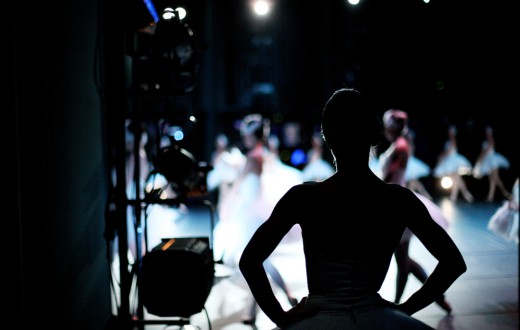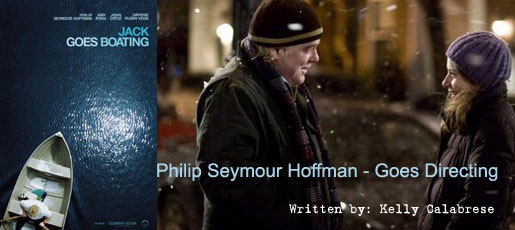“Fie, fie upon her!
There’s language in her eye, her cheek, her lip,
Nay, her foot speaks; her wanton spirits look out
At every joint and motive of her body.” — William Shakespeare
There is of course no one who could put the facts about body language more artfully than the Bard. But one thing we do know that wasn’t known in his time is the scientific proof that what we say without words is actually, literally a much greater part of human communication than what we say aloud.
As one famous UCLA study claimed, up to a whopping 93 percent of human communication comes via non-verbal language. And while subsequent studies have challenged that figure, the truth remains that what we say with our faces and our bodies is a huge part of human communication.
As actors, of course, we are all well aware of what kind of messages we communicate with our physicality and facial expressions without uttering a word. And there’s no place better to observe this truth than in the audition room – and in the audition waiting room. Nervous Newbie? Seen it. Blustery Blowhard? Check. How about Quietly Confident? That’s the one to aim for, of course.
This isn’t to say that you shouldn’t have any kind of nerves before a big audition, of course. Nervousness and adrenaline are an essential component in the complicated jet fuel mixture that drives acting.
No, this is merely to remind ourselves that what we DON’T say in an audition is just as important as what we say. Here are some things to think about:
1. You’re already speaking long before you even enter the room
Body language and our reading of it in other people is something that occurs largely subconsciously and without our knowing it’s even happening much of the time. So remember that your audition begins the moment you walk into the building and behave accordingly. Treat the other actors waiting and the person taking names the same way you plan to treat the people behind the table in the audition room: a confident smile, a handshake if offered, and a relaxed, friendly demeanor go a long way. Projecting the air of a professional who knows what he or she is doing and is good to roll with whatever comes next is a huge plus. And of course you may be nervous on the inside. But one way to transmit this kind of language to your own body is to literally stop and take a deep breath and pull your shoulders back and open up your chest and heart. Try it now: you can feel tension slip away almost immediately. That physicality alone, of someone with an open posture, who is breathing easily, smiling and relaxed will often get you a second look from a production team regardless of how the read actually goes. Contrast that with the physicality of a nervous, jittery, quick-walking person who comes in all hunched over and tight but who is word perfect on their lines – if you were a casting director, who would you rather see again?
2. Time is on your side
One trap many actors fall into at auditions is feeling rushed. It’s understandable because we are empathetic creatures and the tension in audition rooms is often palpable, not only from the other actors but from the production team as well. Don’t let the harried nature of the PA taking names or bringing you into the audition room rub off on you. They have their thing – and all respect to what they do, because it’s not easy – but your thing right now is to…well, do your thing. Enter the room at an easy, relaxed pace, smile, give everyone good, solid eye contact, say your hellos and respond accordingly to whatever is offered (i.e. handshake, chat, etc.) but not to excess. Then get yourself ready: plant yourself on your mark, take a deep breath and relax into the mindset of what you’re about to do before launching half-cocked. Remember, this is YOUR time. They may be on a schedule here, and they may be behind, but part of their schedule is to see you act. You do not only yourself but the entire production team a disservice if you allow yourself to be rushed into giving less than 100 percent. Plus taking the time to set yourself conveys confidence and a sense of professionalism.
3. The space
While it’s important to enter the room with an air of confidence and physical openness, it’s also important to understand and apply other spatial norms before, during and after your read. There are far too may actors who uncomfortably invade the space of the production team in a vain effort to be chummy, and there are too may who shy away like whipped puppies as well. Use your acting skills to read the room pre-audition and behave accordingly with the auditors. Understanding space during your read is key as well. Is the scene intimate, calling for close physical proximity with your scene partner? Or more formal or distant? Be sure to prepare for these types of details before you go in. Another great body language trick for auditions and acting in general is “the lean.” We all know about eye contact and how important it is to communicating with our scene partner. But you can really amp up the message you’re trying to get across if you work on leaning in at key points in what you’re saying. Imagine using your entire body as a hand gesture to add an extra point of emphasis at appropriate moments while gazing into the eyes of your scene partner and watch the energy skyrocket!
4. The aftermath
If you’ve spent any time attending auditions as an observer, you know that the number of actors who crumble the minute they’ve got no lines left to say is pretty staggering. Even those actors who seem to have somewhat mastered at least the appearance of confidence before reading can seem completely flummoxed if the CD gives them an adjustment – or, God forbid, if the director tries to engage them with some chat in order to get a feel for who they are as a person. Make sure you let your body language continue to express that air of confidence and relaxed, engaged openness after your lines are done. Don’t hang around forever after your read, but on the other hand don’t make a mad dash for the door either like you’re a kid at the end of math class heading out to recess. And prepare yourself mentally for some post-read banter for God’s sake! Far too many actors just freak right out and descend into muttering, flummoxed babbling if a director asks a simple question like “So what do you do for fun?” Or “Tell us a little about yourself.” Be ready for something like this, and engage your improv muscles in advance as needed in order to do so. Being physically engaged and open is a great start.
5. Translate to video
As well all know, more and more auditions these days start out with a video submission. Make sure you apply all of the above to your self-tapes! You should appear confident and friendly, open and ready to work. Let them see who you really are: confident and competent. And self-submit today right here on NYCastings. With hundreds of auditions posted every day, and thousands of industry professionals perusing the site, you need look no further for your launching pad to the career trajectory you desire!







